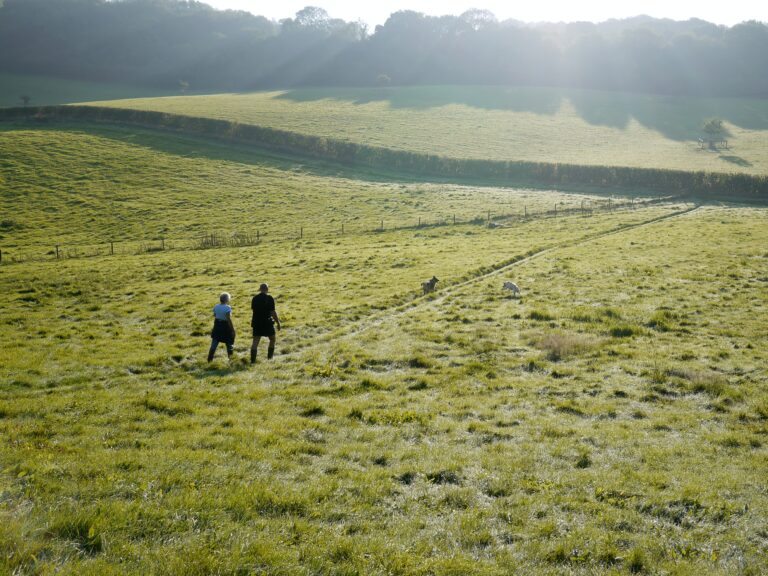In Dependence
Guest blogger: Steven Cottam
I do not depend on God. Well, I mean I do, as all existence does. But I prefer to think that really I succeed because I’m a hard worker and a good guy and I’m ever so smart. All I ask, really, is that God not smite me with some sudden tragedy that would prevent me from caring for myself as I normally do. Like Bart Simpson’s infamous grace, many of my prayers over meals, no matter how pious the outward expression, are suffused with the subtext of, “Dear God, we paid for all this stuff ourselves, so thanks for nothing.”
That feeling that I find inside myself is the reason why I spend this month every year looking upon the Muslim world through the eyes filled with admiration and holy envy. For it is currently Ramadan, and most members of the Muslim community are engaged in a physical struggle against themselves, against their hunger and thirst, during this month’s daylight hours; not to mention an inner struggle in which every fasting believer attempts to raise their ethical conduct to a higher than normal level throughout the month. And I envy them because, despite the hardship involved, it is obvious that throughout this month so many Muslims deepen their awareness of God and their dependence upon the Almighty; they feel God supporting them, and they support each other. It makes me feel that, despite the fact that I am eating and drinking and they are not, it is I who am missing out on something.
I always find it curious that my tradition, or at least the American manifestation of it, has more or less abandoned the spiritual practice of fasting. Why? I think that maybe we don’t really understand why it’s valuable, or what we’re supposed to get out of it. Often if you ask even those who support the practice, you don’t get a very clear answer. Reasons for fasting always focus on the deprivation. We are told fasting helps check our greed. Or, we are told that fasting helps us empathize with the poor, who miss meals often, and not by choice.
However, while I think those are good benefits, they can’t possibly be the reason we fast. For one thing, if they were, why should poor Christians fast? They already know what it’s like to miss a meal! Yet, in both Islam and Christianity, fasting, like prayer and almsgiving, is universally proscribed. What’s more, in the tradition of the early Church, when most of the people were far poorer than we are, fasting was far more widely practiced. So, again, why?
Here perhaps we can look to the Muslims for help. In the Qur’an, the reason given for fasting is to increase our taqwa, an Arabic word perhaps best translated as God-consciousness. The point of fasting is to make us aware of God’s presence. This is actually very similar to the view of fasting we find in the Gospels. In the 6th chapter of Matthew, Jesus talks about fasting right before he talks about our need to recognize our dependence on God. Fasting is set to curb the human tendency to become anxious and to assume too much control, as opposed to Jesus’ advice to remember our place and to make room for God. Interestingly, there is only one place in the Gospel where Jesus forbids fasting, and that is in his presence: “Can the wedding guests fast while the bridegroom is with them?” (Mark 2:19). Since the point of fasting is to increase our awareness of God, leaving a feasting Jesus at table to go and fast would actually be counter-productive.
I think fasting is so ignored because we focus on what we lose, not on what we gain. We’re spiritual cynics, flinching at the great cost incurred for gaining God-consciousness, but ignoring the reward. We focus on the price; we ignore the value. In my own forays into fasting, stumbling and tentative as they have been, I have always felt at the end that I gained far more than I lost.
So next time you feel you have earned all you have, and you hold your head high at the thought of your own mighty and terrifying independence, skip a meal. Skip two. See how much more profound your awareness of your dependence, and the corresponding humility before and gratitude toward God, grows when you not only comprehend, but feel in your very flesh, your own finitude.
And in the meantime, make sure you shoot a “Ramadan Mubarak” to your Muslim friends and neighbors. There is no greater evidence of the grace of fasting than that most of these men and women, abstaining from food and drink on a hot August day, become neither grumpy nor sullen but rather evermore cheerful toward people and prayerful toward God.
This week’s guest blogger is Steven Cottam, a friend, youth ministry partner, and one time cooking club co-member of Sister Julia’s from Catholic Theological Union, where he currently studies Theology and Interreligious Dialogue. He spent some time living and serving at Andre House Catholic Worker House in Phoenix, and currently teaches Religious Education at a Catholic elementary school in Chicago’s Chinatown.
Photo credit: http://www.morguefile.com/archive/display/616419





I think my most meaningful fast was during the Triduum that I became Catholic. Somehow it really helped enter into kyros time and the mystery of the tomb.
Thanks so much for your insighful sharing. And blessings on our many Muslim brothers and sisters!
Wonderful insights and sensitivity. Thank you. I fast as a discipline, like the other disciplines of abstinence or engagement, to deepen my capacity and strength for doing God’s will. Like training conditions athletes for clutch performance. So that’s related to the first three–becoming aware of his will, more able to do his will, for the welfare of his people–but not exactly any one of them. Ramadan Mubarak!
Thanks, Steven, for the reminder to join our Muslim friends spiritually in their Holy Season. For me, fasting is a physical expression of the hunger, deep in the heart of everyone, to consume all of GOD, of GOODNESS. Sometimes called the desire for the Beatific Vision.
This Ramadan I’ve been praying for wealthy Muslim countries in the area of Somalia to give help to their co-religionists who are suffering. And for government leaders to work for the common good, not to use troubled times to stuff their own pockets.